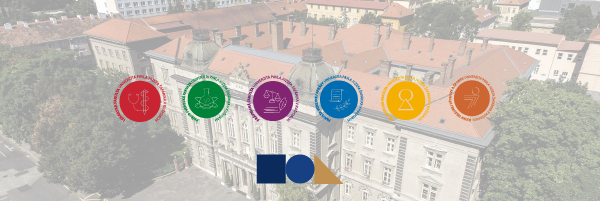Developing and deploying SOC capabilities for the academic sector – a teamwork of Universities and RTOs in the CEE region
SOCCER
The SOCCER project is dedicated to fortifying the cybersecurity capabilities and resilience of the EU, with a paramount focus on ensuring a cyber-secure academia sector. Specifically tailored for CEE countries, the initiative aims to support the establishment and advancement of Security Operations Centres (SOCs) within Universities and Research and Technology Organisations (RTOs). The CEE region is now being heavily affected by a multitude of cyber operations conducted in parallel to growing geopolitical tensions. At the same time, 2023 is on track to be a record-breaking year for ransomware attacks against education institutions, and almost 70% organizations in the educational sector suffered a cyber attack within the last 12 months. The SOCCER project contributes to long-term policy objectives identified by the European Commission and European Union authorities in regards to EU-wide cybersecurity capacity building. It addresses the specific challenge of increasing number and sophistication of cyber-attacks and cyber-operations targeting the academic sector as well as the security challenge of the CEE region being at the frontline of the hybrid threats resulted from the Russian aggression on Ukraine. The project envisages the EU-wide SOC’s ecosystem in the making and willing to integrate the academic sector with priorities and tasks which will be undertaken and implemented by ECCC and the Network of National Coordination Centres. The cybersecurity in the academia sector is vital for protecting intellectual property, maintaining research integrity, preserving privacy, upholding institutional reputation, facilitating collaboration, ensuring regulatory compliance, safeguarding critical infrastructure, contributing to workforce development, and addressing national security considerations. The idea of establishing a network of SOCs across the EU was introduced by The EU’s Cybersecurity Strategy for the Digital Decade in order to support the improvement of existing centres and the establishment of new ones. The goal is to “support public-private and cross-border cooperation to create national and sectoral networks, involving also SMEs, based on appropriate governance, data sharing and security provisions”. The goal is to let network of SOCs become “a real cybersecurity shield for the EU” which will connect „as many centres as possible across the EU to create collective knowledge and share best practices”.
The project involves several departments within the UPJŠ: The project involves several departments within the UPJŠ: Centre of Information and Communication Technologies, Institute of Computer Science, Department of Commercial Law and Economic Law of the UPJŠ Faculty of Law, Gustav Radbruch Institute of Theory of Law of the UPJŠ Faculty of Law, The Lifelong Learning Center and Project Support of UPJŠ
Mission: Our mission is to fortify the academic sector’s defense against cyber threats, acting as the strategic goalkeeper for intellectual capital, research integrity, and student privacy. As the coach of cybersecurity resilience, we empower academic players to navigate the ever-evolving field, ensuring the continuity of research, protecting critical data, and upholding the reputation of institutions.
Goals:
- Development of SOCs or SOC’s capabilities within the SOCCER consortium which will lead to better monitoring, detection and response to cyber-attacks thus protecting students, employees and scientists’ personal data, IPR and critical technologies.
- Supporting SOC preparedness and readiness by preparation of educational materials on the SOCs implementation.
- Establishing information & CTI sharing ecosystem across the academic sector in CEE thanks to vulnerability databases.
- Creation of the SOC4Academia Toolbox to popularize the knowledge about the SOC development, deployment and functioning as well as models of possible SOC services deployment and integration.
- Initiating and supporting an integration and cooperation with CSIRTs as well as European and international structures thanks to popularisation of a framework for joint reaction against cyber incidents (FIRST, SIM3).
- Leveraging state of the art Artificial Intelligence and Machine Learning techniques and use of computing power to innovate and improve the detection of malicious cyber activities.
Programme: DIGITAL EUROPE
Call: DIGITAL-ECCC-2022-CYBER-03-SOC
Project duration: 01.10.2023 – 30.09.2026
Responsible persons:
doc. JUDr. RNDr. Pavol Sokol, PhD.
Ing. Jozef Jantošovič
Consortium:
- AKADEMIA GORNICZO-HUTNICZA IM. STANISLAWA STASZICA W KRAKOWIE (coordinator)
- MYKOLO ROMERIO UNIVERSITETAS
- CESNET ZAJMOVE SDRUZENI PRAVNICKYCH OSOB
- UNIWERSYTET ROLNICZY IM. HUGONA KOLLATAJA W KRAKOWIE
- UNIVERZITA TOMASE BATI VE ZLINE
- Masarykova univerzita
- UNIWERSYTET JAGIELLONSKI
- TARTU ULIKOOL
- UNIVERZITA PAVLA JOZEFA SAFARIKA V KOSICIACH

This project has received funding from the European Union’s Digital Europe Programme under Grant Agreement No. 101128073.




